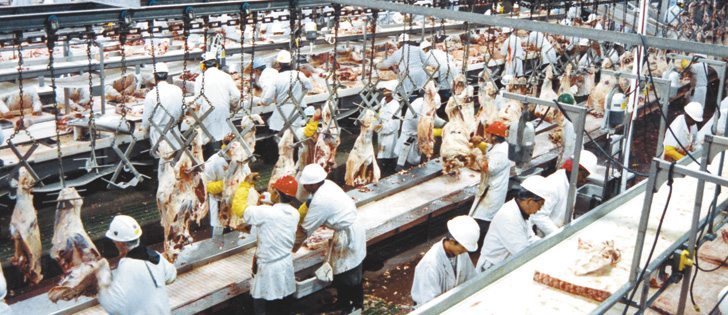Manitoba is one step closer to a federally inspected cattle slaughterhouse.
The federal government has released guidelines for its $50 million Slaughter Improvement Program, which is designed to assist the red meat packing industry and address slaughter capacity gaps in Canada.
“The Slaughter Improvement Program, a commitment made in Canada’s Economic Action Plan, is now up and running,” said Jean-Pierre Blackburn, minister of national revenue and minister of state for agriculture, in a release.
“This program will make red meat packing and processing facilities more competitive and accessible to farmers across the country.”
Read Also

Manitoba extends Crown land rent freeze
Manitoba government links the continued rental rate freeze on grazing and forage leases to economic and environmental challenges facing the industry
The general concept for the loan program was announced in the 2009 federal budget and federal agriculture minister Gerry Ritz said the program was well suited for Manitoba.
Kate Butler, executive director of the Manitoba Cattle Enhancement Council, an agency with the mandate of expanding the beef processing industry in the province, is pleased.
“The program itself has generous repayment parameters,” said Butler. “That’s obviously helpful, because the first few years of a startup are the most challenging …. That’s where you need the most favourable lending terms.”
According to guidelines on the federal government’s website, the repayment period for the loan will be 10 years or less, depending on circumstance.
“Each conditional funding agreement may well be subject to its own negotiation. We’re not seeing standard forms,” she noted.
Eligible projects include investments to improve plant efficiency and technologies for value-added processing, but the program does not apply to the construction of new facilities.
If improvement costs are less than $100,000, financial assistance may not require repayment.
The first applicant will likely be Keystone Processors, a producer owned company that is renovating a former Maple Leaf Foods hog plant in Winnipeg and converting it into a cattle plant, capable of processing 500 animals per day.
Keystone sent out its first shipment of meat this spring to the local market and has set a goal of opening a federally inspected plant by 2011.
The cost of renovating the plant is estimated at $25 million. MCEC, which is funded by a $2 per head producer checkoff and matching provincial government funds, has committed $2.4 million to the project.
Butler, who likes the loan aspect of the program, said the slaughter improvement program requires a 15 percent equity investment in improvements.
“I like that it’s repayable. I think that tax dollars should be (repayable), as a rule,” she said.
Having a federally inspected plant in Manitoba is crucial in the new era of border restrictions and disease control, Butler added.















